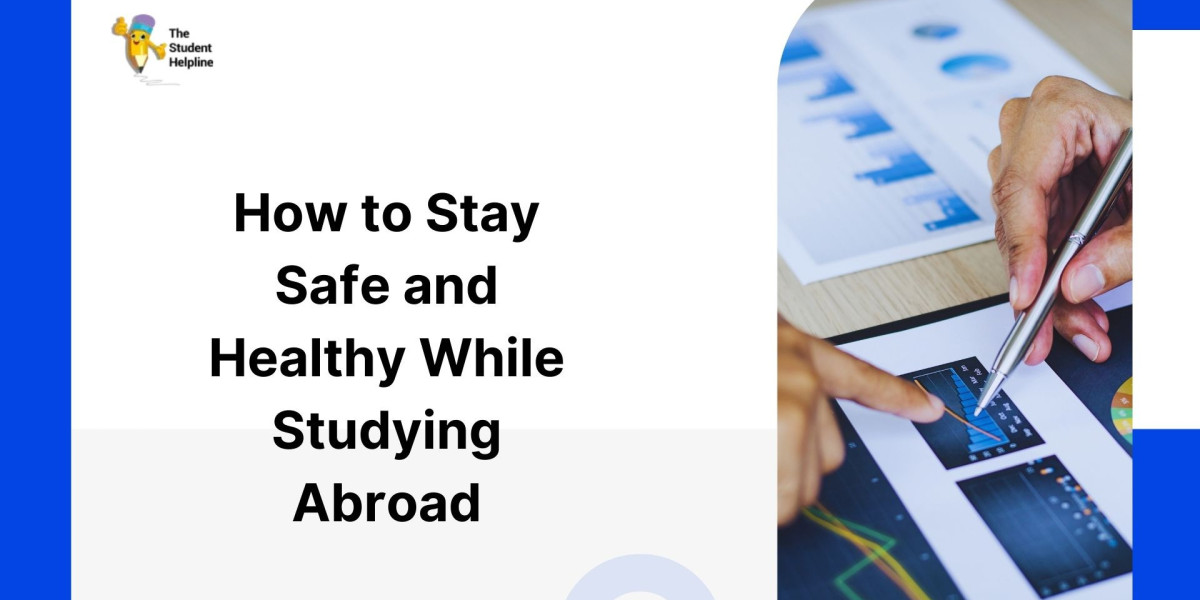Studying abroad is a life-changing opportunity that combines academic growth with personal development. However, moving to a new country comes with its own set of challenges, including staying safe and healthy. Whether you plan to study in the UK or another destination, prioritizing your well-being is crucial. With the right preparation and guidance from a study abroad consultant, you can navigate these challenges successfully. Here’s a comprehensive guide to staying safe and healthy while studying abroad.
Understanding Safety and Health Risks While Studying Abroad
Studying in a foreign country introduces students to new environments, lifestyles, and health systems. Adjusting to these changes can be daunting, but understanding potential risks is the first step towards mitigating them.
Cultural and Environmental Differences
Differences in food, climate, and local customs can initially feel overwhelming. Adjusting to a new lifestyle requires time and awareness.
Health System Variations
Countries like the UK have well-organized health systems, but students need to understand how to access services and the requirements for medical insurance.
Safety Challenges
While most study destinations are safe, incidents like petty theft, scams, or accidents can occur. Learning to navigate your surroundings confidently is essential.
Preparing for Your Study Abroad Journey
Preparation is key to ensuring safety and health while studying abroad. Here are steps to take before you travel:
Research Your Destination
Understand the culture, laws, and healthcare system of the country you are visiting. If you plan to study in the UK, familiarize yourself with the NHS (National Health Service) and how it supports international students.
Get Health Insurance
Many countries, including the UK, require international students to have health insurance. Check if your university offers a health plan or invest in private insurance. A study abroad consultant can guide you through the best options.
Pack a First-Aid Kit
Include essential medications, vitamins, and any prescriptions you need. Also, familiarize yourself with the local names of your medications in case you need to replenish them.
Complete Necessary Vaccinations
Ensure you’re vaccinated as per the requirements of your host country. This is especially important for diseases specific to certain regions.
Secure Important Documents
Have multiple copies of important documents like your passport, visa, student ID, and health insurance policy. Save digital backups as well.
Staying Healthy While Studying Abroad
Maintaining physical and mental health is crucial when adjusting to a new country. Here are practical tips:
Eat a Balanced Diet
Local cuisines can be exciting but may differ significantly from what you’re used to. If you’re studying in the UK, you’ll have access to diverse food options. Ensure your meals include fruits, vegetables, and protein-rich foods to maintain your energy levels.
Exercise Regularly
Engage in physical activities such as walking, yoga, or joining a gym. Many universities have on-campus fitness centers that are either free or discounted for students.
Prioritize Sleep
Adjusting to a new time zone can disrupt your sleep patterns. Create a consistent sleep schedule to avoid exhaustion and boost your academic performance.
Manage Stress
Adapting to a new academic and social environment can be stressful. Utilize resources like counseling services offered by your university to manage mental health effectively.
Stay Hydrated
Different climates can affect your hydration needs. Always carry a water bottle and make drinking water a habit.
Ensuring Safety While Studying Abroad
Being proactive about your personal safety is crucial. Here’s how you can stay safe:
Learn Local Laws and Customs
Understanding the laws and cultural norms of your host country is essential. For instance, the UK has strict laws on public behavior and alcohol consumption.
Avoid Risky Situations
Be cautious in unfamiliar areas, especially at night. Avoid walking alone and stay in well-lit, populated areas.
Use Reliable Transportation
Familiarize yourself with the public transport system. In the UK, options like the Underground, buses, and trains are reliable. Avoid unregistered taxis or rideshare services.
Protect Your Belongings
Keep your personal items secure and avoid displaying expensive gadgets or large amounts of cash in public.
Stay Connected
Always inform someone you trust about your whereabouts, especially when traveling. Use your smartphone’s location-sharing features if needed.
Accessing Healthcare While Studying Abroad
Knowing how to access healthcare can save you time and stress in emergencies. Here’s what you need to know:
Register with a Local GP
If you’re studying in the UK, registering with a General Practitioner (GP) is crucial for accessing healthcare services through the NHS. Many universities assist students in this process.
Know Emergency Numbers
Save the local emergency numbers on your phone. For instance, in the UK, dial 999 for emergencies.
Understand Your Health Insurance Coverage
Ensure you know what your insurance covers, including emergency care, medications, and hospital stays. A study abroad consultant can help clarify any doubts.
Visit Campus Health Services
Most universities offer on-campus health services. Use these for minor illnesses or advice on staying healthy.
Handling Emergencies While Studying Abroad
Emergencies can happen anywhere, and being prepared makes all the difference:
Have an Emergency Contact List
Maintain a list of important contacts, including your university, embassy, and local emergency services. Share this with a trusted friend or family member.
Know Your Embassy’s Location
Locate your country’s embassy or consulate and keep their contact details handy for assistance with lost documents or legal issues.
Stay Calm and Act Quickly
In emergencies, stay calm and follow the guidance of local authorities or university officials. Use emergency apps or helplines when necessary.
Leveraging Support from Study Abroad Consultants
A study abroad consultant plays a pivotal role in ensuring your safety and health while studying abroad. Their expertise includes:
Advising on health insurance and vaccination requirements.
Providing insights on safe housing and transportation options.
Helping you prepare for cultural adaptation and stress management.
Offering guidance on accessing healthcare in your destination country.
By working with a study abroad, you’ll be better equipped to handle challenges and focus on your academic and personal growth.
Conclusion
Studying abroad is an enriching experience, but it’s essential to prioritize your safety and health to make the most of this opportunity. By preparing thoroughly, staying vigilant, and using resources like a study abroad consultant, you can create a safe and fulfilling study abroad journey. Whether you’re planning to study in the UK or elsewhere, a proactive approach ensures you thrive academically and personally in your new environment.


